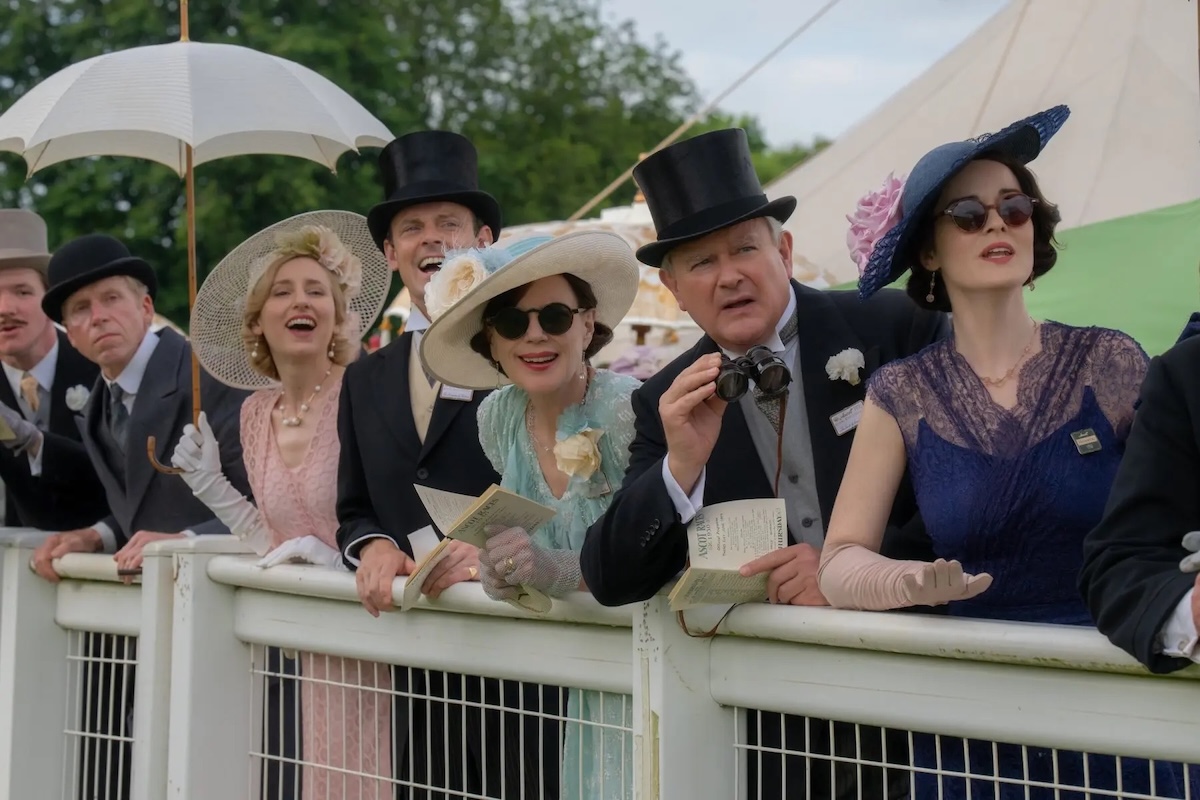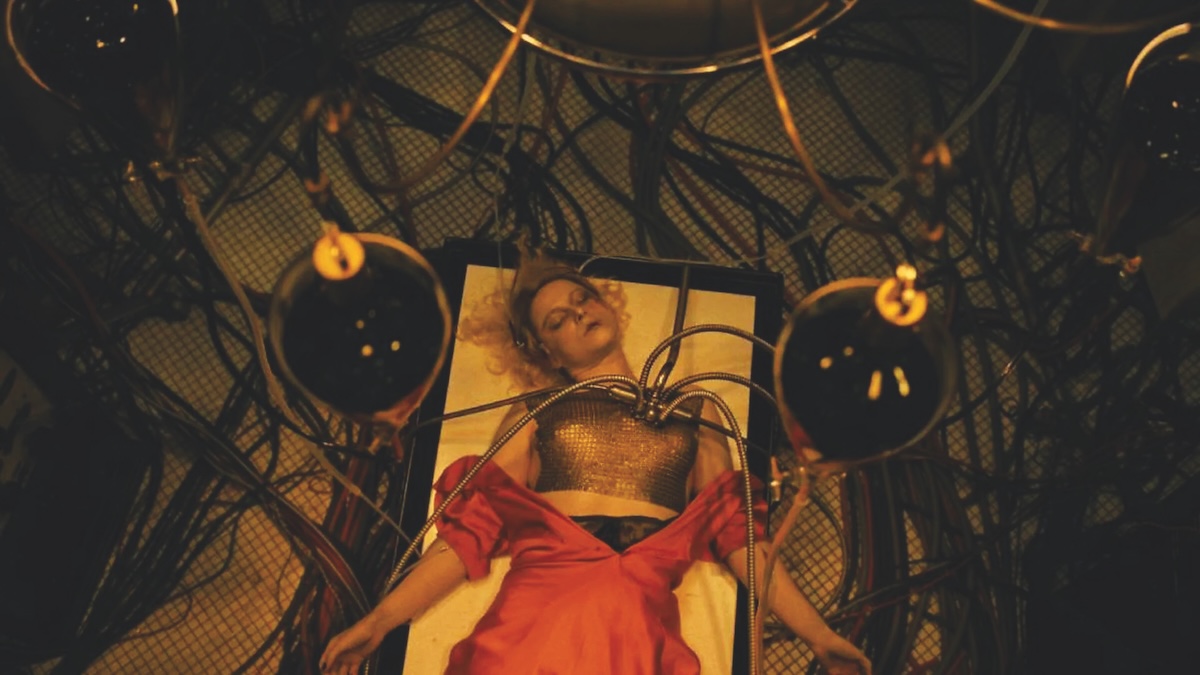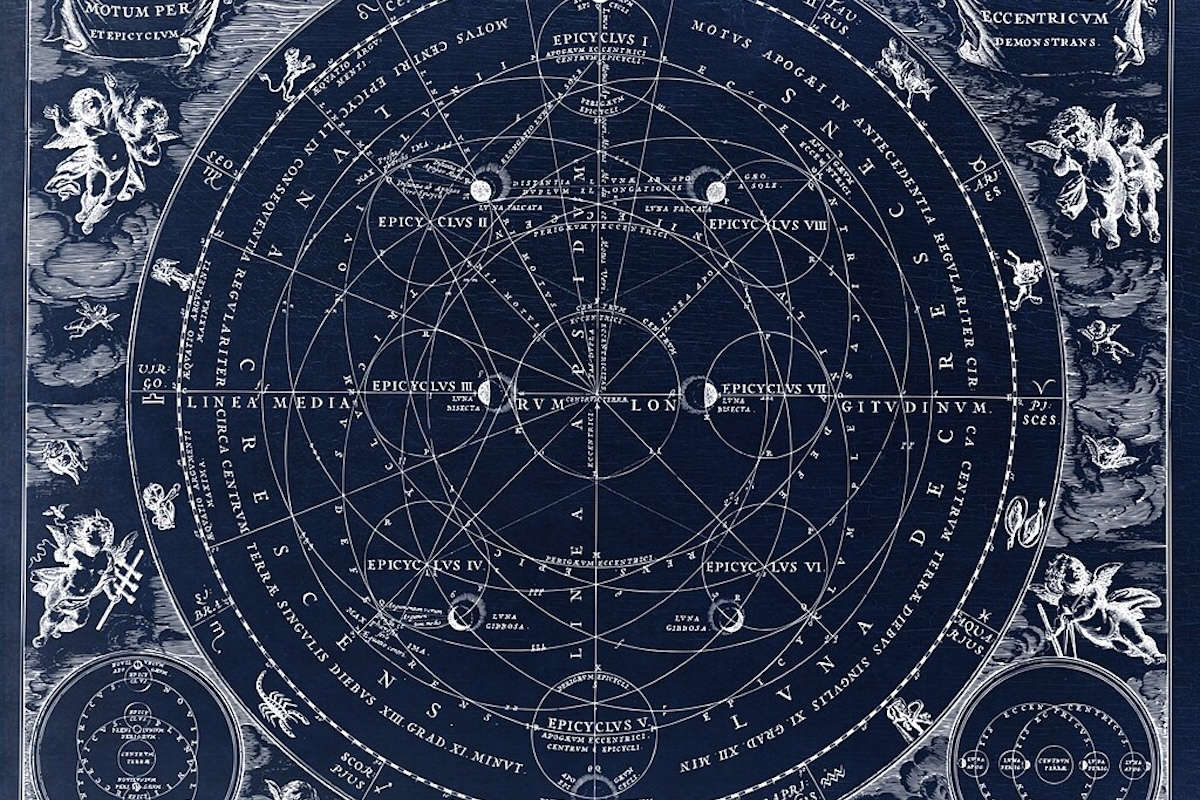While the full title of the latest entry into our favorite Upstairs/Downstairs-ish series is Downton Abbey: The Grand Finale, the film feels more like it’s filled with new beginnings than a series of endings and bittersweet leave-takings. Yes, the new entry into the series will work beautifully as an ending point and a place where fans say goodbye to these beloved characters, but it also feels like a step into a different era more than it does a finale.
Picking up two years after the last film, Downton Abbey: A New Era, the latest installment finds everything in a state of flux for the Crawley family, their friends, servants and hangers-on. There are entirely too many characters to share what’s going on with all of them, but they all are here… at least for a moment. Creator/writer Julian Fellowes and director Simon Curtis know exactly why we care about these characters and this world, and while giving us exactly what we’re looking for, they still inverted my own expectations and turned the film into something entirely unexpected.
The Grand Finale weaponizes our feelings for most of these characters, knowing the ending we think they deserve and then toys with us about whether they will actually achieve it. Robert Crawley misses the old days and the power he carried from birth as an aristocrat. Lady Edith is finally being treated seriously and is done being taken for granted. Lady Mary is so used to being the “good daughter” she can barely understand why her life is falling apart, even as she makes one terrible decision after another.
Downstairs, Mr. Carson struggles with retirement and doesn’t completely know how to relinquish control of Downton. Mrs. Patmore looks forward to passing the kitchen management on to Daisy, but finds it bittersweet nonetheless. Andy doesn’t know if he will be respected as the new head butler, but leans into it anyway. Everyone downstairs is in flux because everyone upstairs is, as well. This delicate ecosystem is about to be flipped upside down.
That’s where The Grand Finale truly sings. The show Downton Abbey became a smash success because audiences fell in love with the abundance of nostalgia it offered—not just for turn-of-the-century stories of manners and honor in British castles, but for certain members of the audience, a time they look back on as “the good old days.” And this is why writer/creator Julian Fellowes is a certified genius. He wants to show respect to this bygone era of the British empire, but he also subversively shows modern audiences the danger of nostalgia for a time where the only people really enjoying themselves were rich, white, male and privileged.
Fellowes spends almost the entire runtime of The Grand Finale showing the audience that everything is changing because it needed to. That Lady Mary is being ostracized from society for divorce, while her ex-husband has no repercussions is ridiculous and profoundly sexist. That men hold power much longer after losing relevance is not how the world is supposed to work. Fellowes loves these characters like members of his own family, so most of the lessons come gently, however by the end of The Grand Finale it seems the entire thesis of the film is a slight nudge to the audience, asking us why we’re still so in love with a bygone era that allowed very little equality between men, women and the classes and what that says about us in 2025. But it’s said with love and a wink.
The film is handsome to watch, filled with lovely performances across the board, and even for a casual fan of Downton like myself, it’s completely absorbing. It’s certainly not perfect, as the film feels quite episodic, like three episodes of the show edited together, leaving the pacing sputtering all over the place at times. Plot lines go away as soon as Fellowes gets bored with them and then he moves on without delay. The entire second act is focused on a slimy American businessman who is making a move on Lady Mary, but he’s dispatched so quickly and easily that before we even notice, the third act luxuriates in a stakes-free dinner party with Noël Coward.
While everyone in the cast eventually has at least one nice moment, a few characters definitely get left behind without much involvement in the story. Mr. Bates and Anna have always felt like the heart of the show to me (or at least the soul), but aren’t given much to do. And while Bates has a few lovely moments toward the end, I would have enjoyed seeing Thomas Barrow more after all the changes his character has gone through. These are just personal choices, as I’ve always found this pair to be much more dynamic and fascinating characters than Richard and Cora Crawley.
Still, as a goodbye to Dame Maggie Smith and to this beautiful castle in the countryside, the film works beautifully and it is ultimately critic-proof, as no one who loves this world would miss The Grand Finale for anything. Watching this lovely company of actors take their final bows as these beloved characters is a treat, whether the film is perfect or not. This is cinema as comfort food, a cozy blanket for trying times.
I wouldn’t remotely be surprised if there is a new series in a few years called something like Downton Abbey: The Modern Age that focuses on the children of Lady Mary, Edith or Tom Branson, how they try to protect a society they barely understand and if they embrace the conveniences of the new era. I would watch that show simply because it still seems like there are stories to tell in and around Downton. Or maybe I’m just not ready to say goodbye. Are you?
Grade: B






